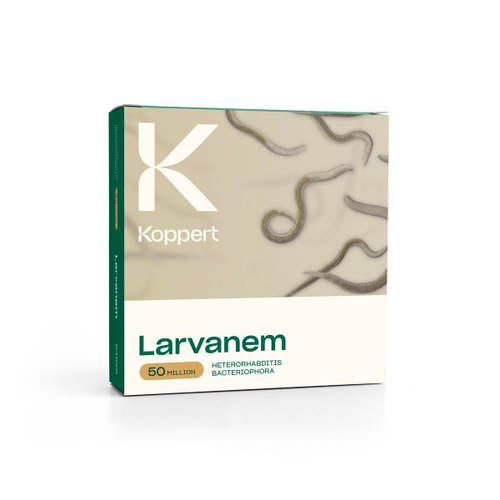Fungus Gnats
Often dismissed as more of a nuisance in protected plant culture, fungus gnats can easily get out of control if not attended to. We’re not sure why, but growers tend to overlook the negative impact that feeding fungus gnat larvae can have on plant growth, health, and yield.
-
 Entomite-M
Entomite-MEntomite-M (Stratiolaelaps scimitus) — Soil-Dwelling Predator for Fungus Gnats & Thrips Pu…
Use For Thrips, Root Aphids, Fungus GnatsSpecies S. scimitus/H. miles$22.49 -
 Entonem (OMRI)
Entonem (OMRI)Entonem (OMRI) — Steinernema feltiae - Nematodes for Soil and Foliar Pest Control Entonem cont…
Use For Fungus Gnats, Thrips, Beetles, CaterpillarsSpecies S. feltiae$40.20 -
 Horiver Sticky Traps
Horiver Sticky TrapsHoriver Yellow Sticky Traps — 10-Pack (3.94" x 9.84") Monitoring & Trapping for Flying Ins…
Use For Aphids, Leaf Miners, Whiteflies, Thrips, Sciarids$10.69 -
 Atheta
AthetaAtheta — Dalotia coriaria (formerly Atheta coriaria)Dalotia coriaria, a species of rove beetle…
Use For Root Aphids, Fungus Gnats, ThripsSpecies Dalotia coriaria$141.96 -
 Larvanem
LarvanemLarvanem — Heterorhabditis bacteriophoraLarvanem contains infective third-stage juveniles (L3)…
Use For Root AphidsSpecies H. bacteriophora$53.71 -
 Isarid Mycoinsectide
Isarid MycoinsectideGeneral information When to use Isarid? Isarid™ works best in a pest management program de…
Use For whiteflies, aphids, thrips, psyllids, mealybugs, leaf hoppers, plant bugs*, weevils*, grasshoppers*, Mormon crickets, locust, beetles, mites, bagrada bugs, lygus bugs, and fungus gnats*. *Not Registered for Use By California$231.70 -
 Capsanem (OMRI)
Capsanem (OMRI)Capsanem — Steinernema carpocapsaeCapsanem contains infective third-stage juveniles (L3) of St…
Use For Caterpillars, Coleoptera, Flies, Fungus GnatsSpecies S. carpocapsae$40.20 -
 Knowing and Recognizing Book
Knowing and Recognizing BookGet the growers’ guide to biological crop protection Knowing and recognizing – The …
$201.27 -
 Horiver Discs
Horiver DiscsHoriver Yellow Sticky Discs — 18 cm Diameter - Monitoring & Trapping for Soil-Emerging Pes…
$73.68 -
 Atheta Bucket
Atheta BucketAtheta — Dalotia coriaria (formerly Atheta coriaria)Dalotia coriaria, a species of rove beetle…
Use For Root Aphids, Fungus Gnats, ThripsSpecies Dalotia coriaria$415.60 -
 Horiver Sticky Traps (Yellow, Large)
Horiver Sticky Traps (Yellow, Large)Horiver Yellow Sticky Traps — Large Cards (9.84" x 15.75") - Monitoring & Trapping for Fly…
Use For Aphids, Leaf Miners, Whiteflies, Thrips, Sciarids$32.76
More Information about Fungus Gnats
[↑ Back to Top]The larval stage actively feeds on the plant's root system. Fungus gnat larvae feed on fungi, decaying organic material, and live plant tissue. They thrive in wet, over-watered conditions, and tend to exist in the upper soil profile, but may live near drain holes. In addition to feeding on roots, the larvae will hollow-out the stems of cuttings in propagation environments.
Fungus gnat larvae and adults are also known vectors of plant diseases. Unfortunately, this negative trait is often underestimated or overlooked. Larval stages can directly transmit root rot from diseased to healthy plants. The list of transmitted diseases includes Pythium, Fusarium oxysporum, Verticillium albo-atrum, and black root rot, Thielaviopsis basicola.
The adults are also capable of spreading foliar diseases such as Botrytis by carrying the conidia on their bodies.
While controlling fungus gnat adults and larvae is relatively straightforward, we cannot overstate the importance of sound irrigation practices and proper drainage to aid in their prevention and control. If fungus gnats are a recurring problem, poor cultural habits may be the root cause.
What to look for
Signs of fungus gnats include stunted plant growth, adult gnats hovering near the soil surface, larvae in the soil.
Life Cycle of Fungus Gnats
The fungus gnat life cycle has 4 stages:
Biology
I see gnats, now what?
There are a few options for control of fungus gnats. Some growers prefer the use of Nematodes such as Stenernema feltiae, while others choose to use Stratiolaelaps scimitis. Both of these pair well with Dalotia coriaria to gain the upper hand on fungus gnats. Apply heavier amounts up front for 2-3 weeks in a row has been the most effective to overpower a cycling fungus gnat populations
I don't see any gnats, but I'd like to prevent problems...
The same predators used to clean up a fungus gnat population can work very well as preventatives. The rate of application would be less, and you would only need to apply every 2-4 weeks to keep the population of beneficials at high levels.
Additional Notes
* It is best to introduce soil predators anytime you bring in new soil or transplant/pot up to maintain root zone protection!

